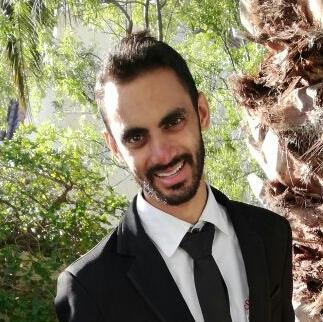Budgets in hindsight
-
The “dismal science” (economics) isn’t so bad when you win money for being good at it.
Students from the Wits School of Economic and Business Sciences have repeatedly excelled in the annual Nedbank Old Mutual Budget Speech Competition.
It was no different in 2017: Wits cleaned up in the undergraduate category of the contest. Winner Raphael Ngarachu enhanced his own budget by R60 000, first runner-up Dylan Barry won R40 000 and Ntokozo Buthelezi earned R20 000 as second runner-up.
But how do the prize-winning essays stand up to the test of time?
Low-skilled labour

In 2014, Yashvir Algu’s suggestions for putting South Africa on a higher economic growth path won him top spot in the postgraduate competition. He’s now working at the World Bank and completing his PhD in Economics (BEconSci Hons 2014, MEconSci 2015). Looking back at what he wrote (before South Africa's credit downgrade), he said he would add some refinements but was sticking with the main idea. He saw South Africa’s abundance of low-skilled labour as a comparative advantage.
Yashvir recommended implementing a minimum wage for low-skilled workers to improve their marginal productivity (government has recently approved this) and a self-financing subsidy to make the minimum wage more affordable for businesses. He still believes the minimum wage can improve productivity, if combined with skills training, but adds that more financing models need to be identified so that firms aren’t forced to shed jobs.
The triple challenge of high unemployment, poverty and inequality persists in South Africa because they are rooted in domestic structural constraints which we have not fully understood, he says. “If we do not adequately address fundamental issues like improving our education system, overcoming the skills mis-match in our labour market and improving policy and political certainty, the triple challenge will still be there in years to come.”
As South Africa’s economic and political landscape shifted in April, he added: “It’s going to be interesting to see how things unfold over the next few months.”
Structural reform

Tlhalefang Moeletsi (BSc 2015, BEconSci Hons 2016) was the undergraduate essay winner in 2014 and the postgraduate runner-up in 2015. He looked at the implications of quantitative easing in the US and Europe for South Africa.
He’s sticking to his guns, saying “South Africa should continue on a path of patient monetary normalisation and fiscal consolidation in order to maintain stability in our macro-economy.”
So far, that seems to be happening (a comment made pre-downgrade). But he hasn’t seen much progress with structural reforms such as varying South Africa’s exports to add value.
“Structural growth constraints are South Africa’s biggest economic challenge now,” he says. “These include a relatively volatile political environment, poor basic education, the higher education funding crisis, the health funding crisis, low commodity prices, energy constraints and inadequate infrastructure and industry investment. All of these factors are acting as a bottleneck to inclusive economic growth. Solving the problems of unemployment and inequality requires us to first tackle these issues.”
Tlhalefang is completing his Master’s degree in Economic Science at Wits, lecturing first-year Economics and working as a consultant at B&M Analysts, to develop a growth strategy for the South African chemicals sector for the Department of Trade and Industry.


